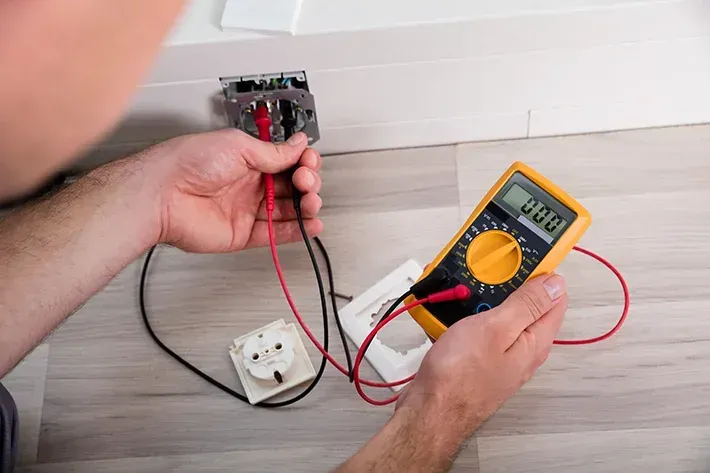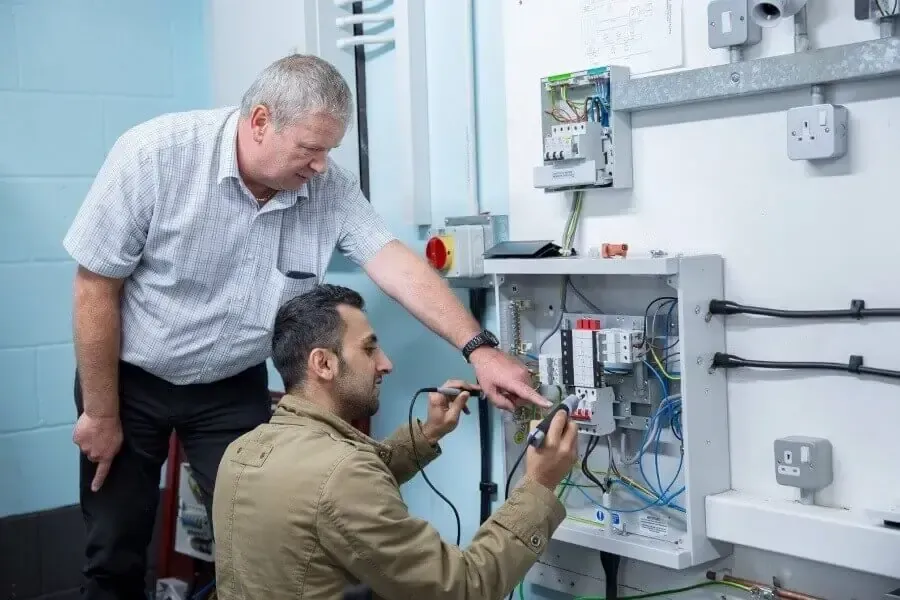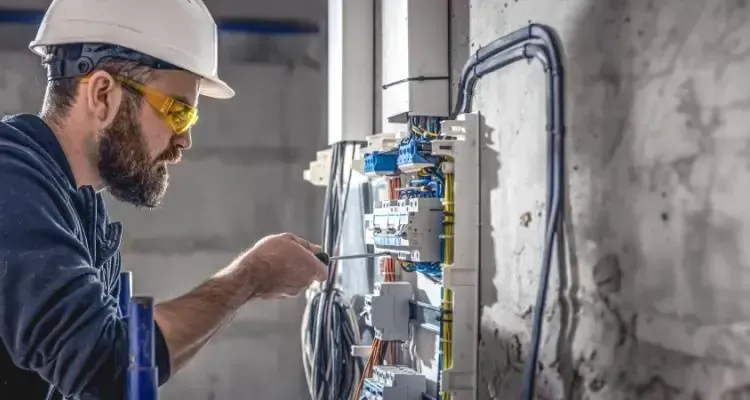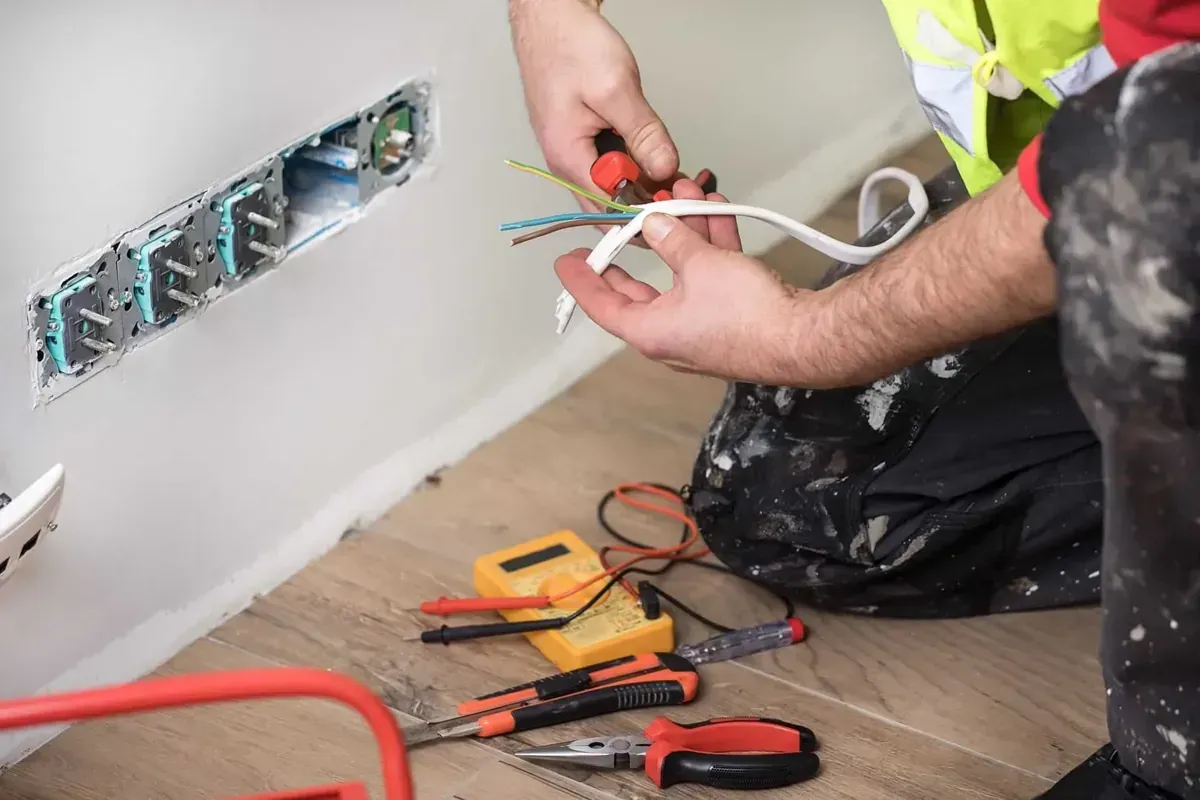Why Your Home Needs a Professional Electrical Safety Inspection
Your home's electrical system works tirelessly behind the scenes, powering everything from your morning coffee to your evening entertainment. But what you can't see could hurt you. Faulty wiring, overloaded circuits, and outdated electrical components cause thousands of house fires and injuries each year, many of which could have been prevented with a simple electrical safety inspection.
Understanding Electrical Safety Inspections
What Happens During an Inspection?
An electrical safety inspection is like a comprehensive physical exam for your home's electrical system. Certified electricians examine every component from your main electrical panel down to individual outlets and switches. They evaluate the condition, safety, and code compliance of your entire electrical infrastructure.
Using specialized diagnostic equipment, inspectors test electrical performance, verify proper grounding, and identify hidden problems that aren't visible to the naked eye. This thorough approach ensures nothing gets overlooked that could compromise your family's safety.
Professional Standards and Protocols
Electrical inspections follow strict industry standards and local electrical codes. Inspectors use calibrated testing equipment and proven methodologies to deliver consistent, reliable evaluations regardless of your home's age or complexity. This detailed approach provides a complete picture of your electrical system's health.
When Should You Schedule an Electrical Inspection?
Before Buying a Home
Never purchase a property without understanding its electrical condition. An electrical inspection reveals potential problems that could cost thousands to repair or pose immediate safety risks. This information helps you make informed buying decisions and negotiate repairs before closing.
Older homes especially benefit from pre-purchase electrical evaluations, as they may contain outdated wiring materials or safety devices that no longer meet current standards.
Based on Your Home's Age
Newer Homes (Under 10 years): Every 5-7 years or after major electrical work. Established Homes (10-25 years): Every 3-5 years Older Homes (Over 25 years): Every 1-3 years or when problems arise
Electrical components have finite lifespans, and regular inspections help catch aging issues before they become hazardous.
After Renovations or Electrical Work
Any renovation involving electrical modifications should conclude with a professional inspection. This verifies that new electrical work integrates properly with existing systems and meets all applicable codes, ensuring your electrical capacity remains adequate and all safety devices function correctly.
What Gets Inspected: A Comprehensive Approach
Main Electrical Panel Analysis
Your electrical panel is your home's electrical command center. A thorough examination includes:
- Panel capacity and load distribution
- Circuit breaker condition and proper operation
- Labeling accuracy and safety clearances
- Signs of overheating, corrosion, or amateur modifications
- Proper grounding and bonding connections
Complete Wiring System Review
The wiring evaluation covers every aspect of your electrical distribution:
- Wire types and age assessment
- Proper sizing for electrical loads
- Connection security and installation quality
- Protection against physical damage
- Identification of outdated materials requiring replacement
Outlet and Switch Performance Testing
Every electrical connection point receives individual attention:
- Voltage and polarity verification
- GFCI functionality testing
- Proper grounding confirmation
- Secure mounting and connection integrity
- Code compliance for all installations
Critical Safety Device Evaluation
GFCI Protection Assessment
Ground Fault Circuit Interrupters save lives by preventing electrocution in wet areas. Testing ensures:
- Proper trip timing (within code requirements)
- Correct reset functionality
- Installation in all required locations
- Protection of downstream outlets
Arc Fault Circuit Interrupter Testing
AFCI devices prevent electrical fires by detecting dangerous electrical arcs. Inspection verifies:
- Proper operation and sensitivity
- Installation in all code-required areas
- Ability to distinguish between safe and dangerous electrical arcs
- Integration with existing electrical systems
Grounding System Verification
Proper grounding provides essential safety protection. Inspection includes measuring and verifying:
- Ground resistance levels
- Main panel grounding connections
- Equipment grounding throughout the home
- Metallic component bonding
- Continuity and effectiveness of safety grounds
Common Hazards Identified During Inspections
Electrical System Overloads
Modern families use more electricity than ever before. Common findings include:
- Circuits operating beyond safe capacity
- Inadequate wire sizing for current loads
- Electrical panels lacking sufficient capacity
- Dangerous temporary solutions like extension cord overuse
Installation Problems and Code Violations
DIY electrical work often creates hidden dangers:
- Improper wire connections and splices
- Missing or inadequate safety protection
- Unpermitted modifications
- Installations that don't meet current electrical codes
These violations can affect insurance coverage and create serious safety risks.
Specialized Outdoor Electrical Inspection
Exterior Electrical Components
Outdoor electrical systems face unique environmental challenges:
- Weather resistance and proper sealing
- GFCI protection for all exterior outlets
- Adequate support and mounting
- Corrosion and moisture damage assessment
Pool and Spa Electrical Safety
Water and electricity require special attention:
- Proper bonding of all metallic components
- Specialized GFCI protection systems
- Correct electrical equipment installation
- Compliance with strict pool electrical codes
The Value of Regular Electrical Inspections
Fire Prevention and Safety
Electrical problems cause over 50,000 house fires annually in the United States. Regular inspections identify:
- Overheating components before they ignite
- Overloaded circuits create fire risks
- Faulty connections that could spark fires
- Aging equipment requiring replacementa
Insurance and Legal Benefits
Many insurance companies:
- Require inspections for older homes
- Offer discounts for recent electrical inspections
- May deny claims for uninspected electrical problems
- Appreciate documentation of electrical system maintenance
Long-Term Cost Savings
Preventive electrical inspections save money by:
- Identifying small problems before they become expensive emergencies
- Preventing electrical fires and their devastating costs
- Ensuring electrical systems operate efficiently
- Planning electrical upgrades strategically
Preparing for Your Electrical Inspection
Before the Inspector Arrives
Help ensure the most thorough inspection by:
- Ensuring clear access to electrical panels and equipment
- Removing stored items from around electrical components
- Gathering documentation of previous electrical work
- Securing pets and informing family members about the inspection
What to Expect During the Inspection
Certified electricians will:
- Examine all accessible electrical components
- Test electrical systems using specialized equipment
- Take photographs of any concerns identified
- Answer questions about your electrical system
- Provide immediate safety recommendations if needed
Signs You Need an Electrical Inspection
Immediate Warning Signs
Schedule an inspection immediately if you notice:
- Frequent circuit breaker trips
- Burning smells near electrical components
- Flickering or dimming lights
- Warm or discolored outlet covers
- Mild electrical shocks from appliances or switches
Age-Related Indicators
Consider an inspection if your home has:
- Electrical work over 25 years old
- Two-prong outlets throughout the house
- Fuse boxes instead of circuit breakers
- Extension cords used as permanent wiring solutions
- Aluminum wiring from the 1960s-1970s
Frequently Asked Questions
Q: How long does an electrical inspection take?
A: Typically 2-4 hours for an average home, depending on size and complexity. Larger homes or those with complex electrical systems may require additional time.
Q: Can inspectors provide same-day repairs?
A: Many electricians can address immediate safety concerns during the inspection visit, though major repairs typically require scheduling a separate appointment.
Q: Will the inspection disrupt my daily routine?
A: Minimal disruption occurs. Some tests may require brief power interruptions, but inspectors coordinate with homeowners to minimize inconvenience.
Q: What happens if serious problems are found?
A: The inspector will explain issues clearly, prioritize them by urgency, and provide detailed recommendations for addressing each concern.
Q: Are all homes suitable for inspection?
A: Yes. Professional electricians can inspect everything from brand-new construction to century-old homes, adapting their approach to each property's unique characteristics.
Conclusion
Regular electrical safety inspections represent one of the smartest investments homeowners can make. These comprehensive evaluations identify hidden hazards, ensure code compliance, and provide peace of mind about your electrical system's safety.
The value extends beyond immediate safety benefits to include insurance compliance, property value protection, and long-term maintenance planning. By identifying problems early, inspections help you address issues before they become expensive emergencies or safety hazards.
Don't wait for electrical problems to announce themselves through flickering lights, tripped breakers, or worse, electrical fires. Schedule a professional electrical inspection today and take the first step toward ensuring your home's electrical safety.
Remember: Your home's electrical system is only as safe as its weakest component. Regular professional inspections help identify and address these weak points before they become dangerous.
Schedule Your Electrical Safety Inspection Today
Don’t wait until small electrical issues turn into costly repairs or dangerous hazards. Protect your family, your property, and your peace of mind by booking a professional electrical safety inspection with
Daniel Rivero today.




